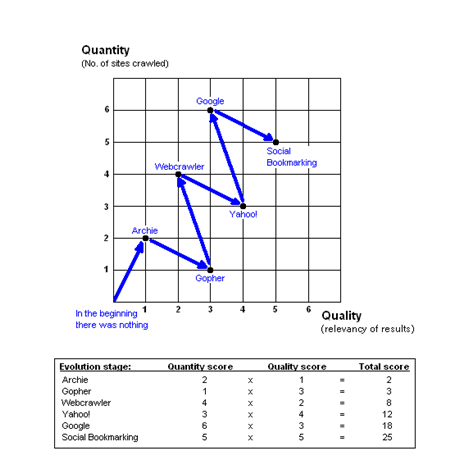Over the years, the engines have developed algorithms to make search as relevant as possible to the user. In the early 90’s, optimizing your website didn’t take the time and work as it does now. It also wasn’t that long ago at all where you can bid for almost any keyword and show up in the results until Google implemented the Quality Score to the engines algorithm to also make that part of search more relevant to the user as well.
How about if the engines used social bookmark sites such as Digg, StumbleUpon, and others and take the amount of votes into consideration a story or link gets as part of its optimization algorithm? As it stands now, the engines do index bookmark links.
New engines will emerge which will optimize all these votes and links from the bookmarks. 50Matches.com is one example, which only crawl’s sites that were bookmarked or voted by people on Digg, Delicious, and Reddit. Serph is also an engine that emerged with a similar ideology and I can bet these aren’t the last engines to come into the picture.
The engines would love the idea of their search to be optimized by the people, who can probably determine more relevance in a story than an algorithm, or not? The problem with this model is there are many marketers now involved in gaming sites such as Digg for driving traffic, link building, etc. It’s not always the most relevant news or “best” news that gets the most votes or reaches the front page. Each bookmark site also has it’s own algorithm to optimize links submitted by users.

50 Matches stated in their about us, “No company could compete with the man hours people put in saving and tagging their bookmarks. No algorithm could calculate site quality better than humans.”
In the next years to come, the power of the social space will have an impact on search results, in some form or another.
Pablo Palatnik is Managing Partner of eTrend Media Group, which specializes in Pay-Per-Click Managagement & Social Media Optimization.




